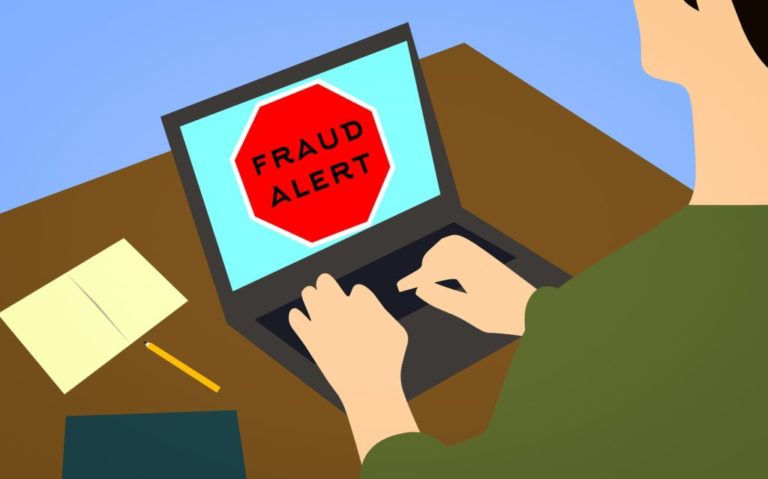What is fraud?
Fraud occurs when a person intentionally causes financial loss to another person through deceit and deception. The fraudster usually does this by misleading the victim in order to gain control of their assets. It is a form of planned, calculated theft. Fraudsters may conduct their activities online, or by carrying out dishonest operations in real life.
The offenses can either be civil or criminal in nature. In the case of civil fraud, the victim files a case against the accused in order to seek the recovery of their lost assets. In the case of criminal fraud, a law enforcement body files a case against the fraudster in order to enforce justice. This is usually in the case of large-scale fraud against companies or many individuals.
The different instances of fraud
There are many ways in which fraud can occur. Here are a few instances of fraud:
Consumer Fraud
Bogus companies and fraudsters may defraud people in the name of reliable companies using Pyramid schemes, phishing, telemarketing, and other means. They may also target consumers online by emailing them links that can compromise their private information when opened. The consumers themselves are led to believe that they are taking part in business as usual. However, once they suffer the loss of their assets, they realize that they have been defrauded.
Financial Statement Fraud
Companies may manipulate their financial statements in order to polish their image in the public eye, or receive bonuses for meeting certain targets when in reality they haven’t done so. They do this by overvaluing their assets, neglecting to mention expenses and liabilities, adding non-existent revenue, and skewing the timing of entries.
Corruption
Company officials at high levels may engage in taking bribes to appease paying customers. They misuse their power and influence for their personal gain. The demands of the payee, in this case, are almost always unlawful, which is why these under-the-table transactions take place.
Asset Misappropriation
Employees of the company may be misusing the provided assets for their own personal gain. The most common malpractice regarding assets is swiping cash before it is recorded in the company’s systems. Detecting this type of fraud is often quite difficult, as no records exist to unmask the fraudster. Employees may also indulge in check tampering, payroll schemes, fake billing, and inventory manipulation. Asset misappropriation also includes the misuse of company machinery and software for one’s own gain. This means using it for reasons other than for its intended purpose.
Theft of trade secrets
This happens when employees use confidential information for their own gain. It is a form of stealing- robbing the company of its creativity and ideas and taking credit for it. If a person or company steals the intellectual property (such as a recipe, lyrics, or a marketing idea) of another company, then it is a type of fraud.
Understanding the motives behind fraud- the Fraud Triangle
The fraud triangle is a representation of why a person might be driven to commit fraud. Each component of the triangle represents a motive behind fraud. So, how does the mind of a fraudster work? Let’s find out-
Opportunity
The first point of the triangle is Opportunity. When calculating people see circumstances that would allow them to commit fraud, they take it. These opportunities are usually caused by unorganization or negligence on the company’s part.
These opportunities are born from the weakening of a company’s internal controls. The internal controls of a company refer to the rules and guidelines put in place to ensure that all accounting and financial processes are done diligently and without any room for fraud.
When there are any gaps left in these quality checks, then people may take the opportunity to commit fraud. When the organization is lacking in competent supervision and checks on these controls, then it leaves alto of holes for employees to take advantage of the situation. If the methods of recording accounts and other financial transactions are inadequate as well, then it may result in employees skewing the entries.
If the upper management of a company is lackluster and doesn’t abide by the proper moral and ethical codes of the company- then it may reflect in the behavior of its employees. Management that conducts themselves properly in public and work diligently decreases the chance of fraud occurring in a company. If the management and board directors themselves fail to do their job, then it reflects poorly on the company, leaving the employees to act however they please. In many cases, this leads to them taking advantage of the management’s aloof manner for personal gain.
Incentive/Pressure
The second point of the fraud triangle is Incentive or Pressure. Pressure usually stems from the employees themselves, who may feel trapped or caged because of certain conditions. They feel that committing fraud to boost their numbers is the only way to escape from their predicament.
The most common form of pressure employees face is their performance review. In many companies, the efficiency of an employee is measured by the revenue he or she brings in, or by the commission they earn. If the expectations from the employees are too high, they may resort to fraud to oversell themselves in the hopes that their managers see them as good performers.
Many companies also offer bonuses to employees who hit certain revenue targets. People may manipulate their numbers in order to qualify for these bonuses- which is also a form of fraud.
Sometimes, companies may also feel pressure from their investors to perform well snd provide good returns. They may commit fraud to maintain good stock prices and keep the investors happy.
Employees may also be facing pressure from unfortunate circumstances in their personal life. Crippling debt, gambling and alcohol addictions, and looming bills may cause them to steal money from the company. People dealing with such issues are the most likely suspects of committing fraud.
Rationalization
The final point is Rationalization. A fraudster may try to justify their actions to themselves or anyone who catches them, in order to convince themselves that what they are doing is right.
The most common causes of this reasoning are when an employee feels that they are being overlooked or mistreated by the company. It may either be a way of getting attention, or payback for their unhappiness.
Sometimes, in the process of rationalizing their actions to themselves, an employee may in fact become irrational. They may get thoughts that committing fraud is the only way they can earn money and live a good life, or that everyone else in the company is secretly doing it as well.
Conclusion
Committing fraud is a criminal offense, and will always remain so. However, the people who commit fraud may always not have malevolent intentions. The reasoning of people behind their actions may often be complex, and there is always more than what meets the eye. The ‘fraud triangle’ sums up these reasonings quite well, and gives us an insight into what might be going on inside the minds of these offenders.






